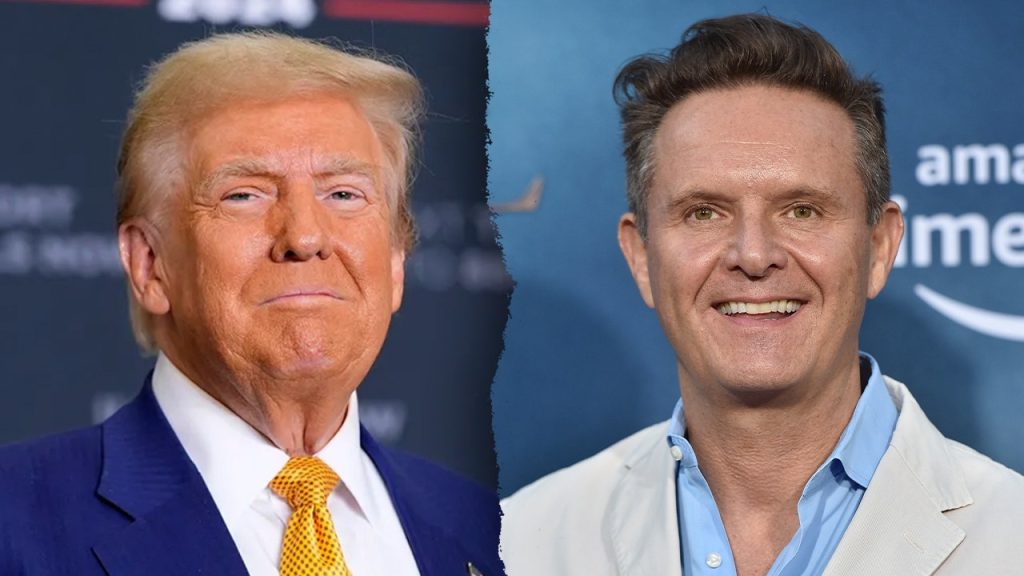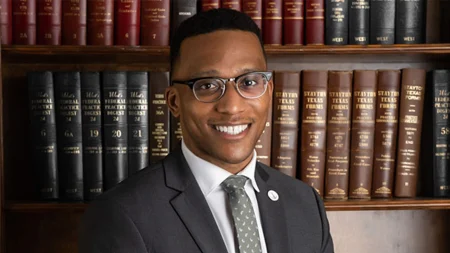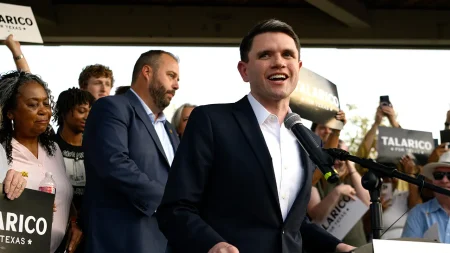Donald Trump’s unexpected nomination of Mark Burnett, the British-American television producer renowned for creating “The Apprentice,” as the next U.S. special envoy to the United Kingdom has sparked widespread discussion and speculation. Trump, via his social media platform Truth Social, lauded Burnett’s “distinguished career in television production and business,” emphasizing his “unique blend of diplomatic acumen and international recognition.” While Burnett’s professional achievements in the entertainment industry are undeniable, his lack of formal diplomatic experience has raised eyebrows, prompting questions about the rationale behind this unconventional appointment. Trump’s announcement did not delineate the specific mission or duration of Burnett’s role as special envoy, further fueling the intrigue surrounding this unconventional diplomatic assignment.
The announcement of Burnett’s appointment follows Trump’s earlier nomination of Warren A. Stephens as the U.S. ambassador to the Court of St. James, the traditional title for the U.S. ambassador to the United Kingdom. Stephens, a prominent figure in the financial services industry with a long tenure as president, chairman, and CEO of Stephens Inc., brings a different skill set to the diplomatic table. Trump highlighted Stephens’ extensive business experience and philanthropic endeavors, expressing confidence in his ability to represent the U.S. effectively in this crucial diplomatic post. The simultaneous appointment of both an ambassador and a special envoy to the same country underscores the significance Trump places on the U.S.-UK relationship. It also raises questions about the division of labor and potential overlap of responsibilities between these two roles.
The appointment of Mark Burnett, while unconventional, potentially reflects a broader shift in diplomatic approaches, with a focus on leveraging non-traditional skillsets and backgrounds. Burnett’s extensive experience in the entertainment industry, particularly his success in creating globally recognized television programs, could be seen as an asset in fostering cultural exchanges and building rapport with a wider audience in the UK. His familiarity with the British media landscape and his understanding of the dynamics of public perception could also prove valuable in navigating the complexities of international diplomacy. However, the absence of a clearly defined mandate for Burnett’s role leaves room for ambiguity and speculation about his specific responsibilities and the effectiveness of his contributions to U.S.-UK relations.
The appointment of a special envoy, while typically a temporary position with a specific mission, can be a powerful tool in diplomacy. Special envoys often possess a unique expertise or personal connection that makes them well-suited to address specific challenges or opportunities in a bilateral relationship. In the case of Burnett, his British-American background and his connection to Trump through “The Apprentice” could provide him with a unique vantage point in navigating the intricacies of U.S.-UK relations. However, the lack of transparency surrounding the specific objectives of his role raises questions about the strategic rationale behind his appointment.
The U.S.-UK relationship, often described as a “special relationship,” is characterized by deep historical, cultural, and economic ties. The two nations have collaborated closely on a wide range of global issues, from security and defense to trade and investment. The appointment of both a traditional ambassador and a special envoy to the UK underscores the importance Trump attaches to maintaining and strengthening this crucial alliance. However, the choice of Mark Burnett for the special envoy role, given his lack of diplomatic experience, raises questions about the direction and priorities of U.S. foreign policy under Trump’s leadership.
The juxtaposition of Warren Stephens, a seasoned business executive, and Mark Burnett, a television producer, as representatives of U.S. interests in the UK presents an intriguing dynamic. While Stephens brings a wealth of experience in finance and business, Burnett offers a different perspective shaped by his work in the entertainment industry. The potential synergy or conflict between these two distinct approaches to diplomacy remains to be seen. The effectiveness of their respective contributions to the U.S.-UK relationship will depend on their ability to collaborate effectively and leverage their unique strengths to advance shared interests. The appointment of Burnett in particular highlights the unconventional nature of Trump’s approach to diplomacy and the potential risks and rewards of relying on non-traditional figures in international relations.















